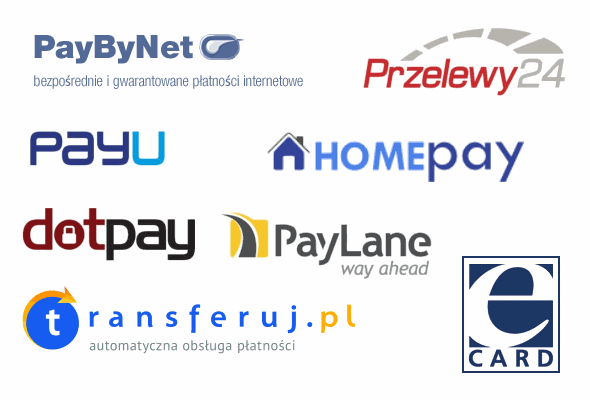Definition
Payment systems are the applicable rules on the basis of which all financial transactions are performed. These may be transactions made using all currently available payment instruments. Payment system operators offer both stationary and mobile services e-commerce. Currently, online payment systems are the most popular among buyers.
Payment systems – interesting facts you need to know!
The most popular payment systems include online payment systems. This is a method of making a bank transfer, but in a much simpler way than what is traditionally done in a bank. This has many advantages, but convenience and speed come to the fore. After all, all data is completed automatically, and the money will appear in our contractor's bank account almost instantly. A huge advantage of this type of transaction is that you do not have to wait for the transfer to be recorded in the bank and you can immediately proceed to further processing of the order, i.e. packing and shipping.
From the consumer's point of view, the best payment systems are those that do not require too many formalities, much less additional fees. In turn, what matters to the seller is low commissions and transaction security (this aspect is, of course, equally important for the buyer). Technical support is also welcome, as this type of failure may occur in the least expected moments, and these have a significant negative impact on customer experience.
Payment systems – the most important information
Payment systems offer services such as: e-transfers, fast online transfers, BLIK, deferred payments, automatic bank payments, Google Pay and others. Each system works slightly differently, and the costs and commissions associated with it are also different. It is best to select them individually and, if possible, adapt them to the needs of customers.
Payment systems ensure a comprehensive flow of payment transactions. Most often it goes as follows. First, an agreement is concluded between at least two participants, after which the payment transaction is initiated. You must accept the terms and then proceed to authorization and data verification. When everything up to this stage is correct, you can complete the payment transaction. Funds are withdrawn from the payer's account and transferred to the merchant. Often, but not always, a commission is also charged at this point.
Cashless payment systems are extremely popular and convenient, but many people still wonder whether they are completely safe. It cannot be denied that systems such as BLIK, NFC or other quick payments, including, of course, card payments, are extremely practical, but concerns are raised about the security of both financial funds and personal data that are processed during the transaction. When paying by card, we are protected by a service called chargeback. In turn, BLIK payments guarantee the highest confidentiality and are safe, just like all payments made via telephone, i.e. NFC technology. However, you should also protect yourself, whether in the event of data loss or cash loss. The basis is securing account access, authentication and transaction limits.
Summary
Payment systems offer extensive services, from ready-made modules to individual solutions. All of them guarantee security, speed of operation and the ability to use the most popular payment methods.
Which payment systems will be best for our business depends on many factors. You should carefully analyze the specificity of the industry, the payment methods offered by the operator, compare your turnover and possible costs related to the implementation and maintenance of a given system. However, it is undeniable that the use of payment systems is necessary nowadays. This is not only convenient and easier for customers, but also increases the potential of your business.
Related entries:
Marketing plan, image creation, brand management, marketing planning, image creation, customer acquisition, sales audit, branding activities, creating a company brand, image creation